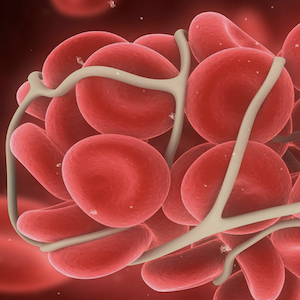Descriptive analysis of patients positive for anti-phospholipid antibodies included in two Italian registries

Submitted: 13 July 2023
Accepted: 20 September 2023
Published: 12 October 2023
Accepted: 20 September 2023
Abstract Views: 652
PDF: 181
Publisher's note
All claims expressed in this article are solely those of the authors and do not necessarily represent those of their affiliated organizations, or those of the publisher, the editors and the reviewers. Any product that may be evaluated in this article or claim that may be made by its manufacturer is not guaranteed or endorsed by the publisher.
All claims expressed in this article are solely those of the authors and do not necessarily represent those of their affiliated organizations, or those of the publisher, the editors and the reviewers. Any product that may be evaluated in this article or claim that may be made by its manufacturer is not guaranteed or endorsed by the publisher.
Most read articles by the same author(s)
- Daniela Poli, Emilia Antonucci, Gualtiero Palareti, Roberto Facchinetti, Pietro Falco, Giuseppina Serricchio, Teresa Lerede, Lucilla Masciocco, Paolo Gresele, Sophie Testa, Major bleedings in mechanical prosthetic heart valves patients on Vitamin K antagonist treatment. Data from the PLECTRUM Study , Bleeding, Thrombosis and Vascular Biology: Vol. 1 No. 2 (2022)
- Paolo Simioni, Vittorio Pengo, Paolo Prandoni, Thrombosis and hemostasis at the University of Padua: a reappraisal on the occasion of its 800th year of history , Bleeding, Thrombosis and Vascular Biology: Vol. 1 No. 3 (2022)
- Cristina Legnani, Michela Cini, Sophie Testa, Alberto Tosetto, Claudia Dellanoce, Stefania Bellesso, Giuseppe Carli, Ilaria Nichele, Laura Lissandrini, Serena Zorzi, Emilia Antonucci, Gualtiero Palareti, Evaluation of Coaguchek®Pro II coagulation testing device performance to assess direct oral anticoagulant action. The DOAC-CHECK study , Bleeding, Thrombosis and Vascular Biology: Vol. 1 No. 3 (2022)
- Daniela Poli, Walter Ageno, Emilia Antonucci, Salvatore Bradamante, Eugenio Bucherini, Paolo Chiarugi, Antonio Chistolini, Benilde Cosmi, Anna Falanga, Antonio Insana, Domenico Lione, Rosa Maria Lombardi, Giuseppe Malcangi, Rossella Marcucci, Giuliana Martini, Lucilla Masciocco, Carmelo Paparo, Daniele Pastori, Simona Pedrini, Vittorio Pengo, Pasquale Pignatelli, Andrea Toma, Sophie Testa, Gualtiero Palareti, Management of anticoagulation in atrial fibrillation patients in Italy: insight from the Atrial Fibrillation-Survey on Anticoagulated Patients Register (AF-START) , Bleeding, Thrombosis and Vascular Biology: Vol. 2 No. 2 (2023)
- Gualtiero Palareti, Paolo Prandoni, Cristina Legnani, Emilia Antonucci, Serena Zorzi, Alberto Tosetto, Lorenza Bertù, Sophie Testa, Vittorio Pengo, Walter Ageno, Ida Martinelli, Benilde Cosmi, Eugenio Bucherini, Daniela Poli, Rationale and design of a study on D-dimer use to stratify patients after a first unprovoked venous thromboembolism for their risk of recurrence: extended low-dose Apixaban given only to patients with positive D-dimer results , Bleeding, Thrombosis and Vascular Biology: Vol. 1 No. 1 (2022)
- Gualtiero Palareti, The diagnostic procedure for subjects with suspected pulmonary embolism. A recent comparison among the recommendations available from the international guidelines , Bleeding, Thrombosis and Vascular Biology: Vol. 3 No. 1 (2024)
- Gianfranco De Girolamo, Luca Sarti, Sonia Cecoli, Karin Bonora, Chiara Ajolfi, Francesco Bellelli, Valeria Coluccio, Gualtiero Palareti, Marco Marietta, Safety and efficacy of treatment with vitamin K antagonists in patients managed in a network of anticoagulation services or as routine general care , Bleeding, Thrombosis and Vascular Biology: Vol. 1 No. 1 (2022)
- Daniela Poli, Riccardo Tartaglia, Doris Barcellona , Paolo Bucciarelli , Antonio Ciampa, Elvira Grandone, Giuseppe Malcangi, Giuseppe Rescigno, Vincenzo Toschi, Sophie Testa, Alessandro Squizzato, Attitude to clinical research among health professionals affiliated with the Italian Federation of Centers for the Diagnosis of Thrombotic Disorders and the Surveillance of the Antithrombotic Therapies (FCSA) , Bleeding, Thrombosis and Vascular Biology: Vol. 2 No. 1 (2023)
Similar Articles
- Juan Eirís, Marina Suárez-Terrón, Pablo Granados, David Martínez-Campuzano, Ana Rosa Cid, Saturnino Haya, Santiago Bonanad, Allopurinol-induced acquired von Willebrand syndrome , Bleeding, Thrombosis and Vascular Biology: Vol. 2 No. 4 (2023)
- Silvia Cardi, Filippo Catalani, Luca Valerio, Stefano Barco, From rare to aware: confronting Lemierre syndrome , Bleeding, Thrombosis and Vascular Biology: Vol. 3 No. 3 (2024)
- Paolo Prandoni, New perspectives for prevention of the post-thrombotic syndrome , Bleeding, Thrombosis and Vascular Biology: Vol. 1 No. 1 (2022)
- Luca Barcella, Chiara Ambaglio, Paolo Gritti, Francesca Schieppati, Varusca Brusegan, Eleonora Sanga, Marina Marchetti, Luca Lorini, Anna Falanga, Long-term persistence of high anti-PF4 antibodies titer in a challenging case of AZD1222 vaccine-induced thrombotic thrombocytopenia , Bleeding, Thrombosis and Vascular Biology: Vol. 2 No. 2 (2023)
- Ottavia Borghese, Claudio Vincenzoni, Commentary on “Preventive percutaneous coronary intervention versus optimal medical therapy alone for the treatment of vulnerable atherosclerotic coronary plaques (PREVENT): a multicenter, open-label, randomized controlled trial” , Bleeding, Thrombosis and Vascular Biology: Vol. 3 No. 2 (2024)
- Matteo Guarascio, Gerardo Nicola Pititto, Alessia Abenante, Marco Paolo Donadini, Distal deep vein thrombosis: is there a way out of this dark forest? , Bleeding, Thrombosis and Vascular Biology: Vol. 3 No. 2 (2024)
- Domenico Prisco, Irene Mattioli, Raffaele De Caterina, Alessandra Bettiol, The new era of anticoagulation: factor XI and XII inhibitors , Bleeding, Thrombosis and Vascular Biology: Vol. 2 No. 2 (2023)
- Giovanni Tiscia, Elvira Grandone, Talking about assisted reproductive techniques and thromboembolic risk: everything we always wanted to know , Bleeding, Thrombosis and Vascular Biology: Vol. 1 No. 2 (2022)
- Luca Puccetti, Vincenzo Sammartano, Federico Caroni, Margherita Malchiodi, Paola Calzoni, Eleonora Franceschini, Lucrezia Galasso, Monica Bocchia, Safety of COVID-19 mRNA vaccination in patients with history of acquired hemophilia A: a case series , Bleeding, Thrombosis and Vascular Biology: Vol. 1 No. 3 (2022)
- Paolo Prandoni, Franca Bilora, Raffaele Pesavento, Giorgina Salgueiro, Angeles Blanco-Molina, Raquel Lòpez-Reyes, Manuel Monreal, and the RIETE Investigators, Treatment of venous thromboembolism in pregnancy: findings from the RIETE Registry , Bleeding, Thrombosis and Vascular Biology: Vol. 1 No. 2 (2022)
You may also start an advanced similarity search for this article.

 https://doi.org/10.4081/btvb.2023.92
https://doi.org/10.4081/btvb.2023.92








